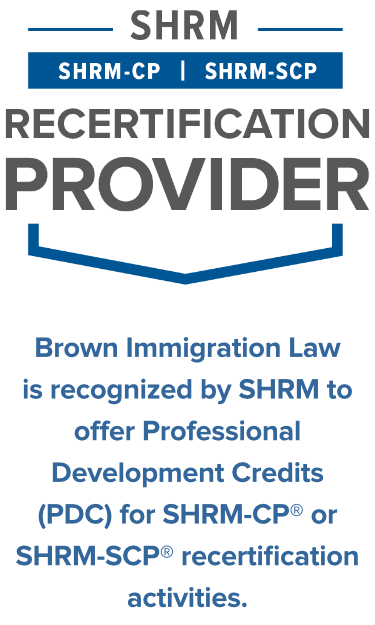Breaking News – Two New Regulations Expected Tomorrow to Further Impact Legal Immigration
After a week of generally good news, we expected things would change as we get closer to the general election. With only four weeks until the November 3rd election, yesterday afternoon, advance copies of new rules were released and shared by the American Immigration Lawyers Association (“AILA”) and others. Both rules are scheduled for publication tomorrow on Thursday October 8th,and they will have dramatic effects on our existing immigration system if permitted to stand without challenge.
The first draft from the Department of Labor seeks to immediately change the calculation of wage rates used for H-1B filings (and E-3 and H-1B1) and Labor Certification Applications. It will reportedly be published on Thursday and take effect immediately. What this means for all clients is that any LCA filed on October 8, 2020 or later will be subject to the new wage calculation, and that any prevailing wage issued October 8, 2020 or later will utilize the new wage calculation. We expect this will have an impact on wage rates that are pending, and we will have to review pending prevailing wages for cases we were planning on filing. It may cause us to have to repost the Notice of Filing (also known as the Internal Posting) using a new wage range, and that may trigger additional changes to an application that otherwise appeared to be ready for filing.
The new wage calculations are based on shifting the percentile wage used in the wage leveling and, as you can see, the change is dramatic:
- Level I Wage: Now 45th percentile (from 17th percentile)
- Level II Wage: Now 62nd percentile (from 34th percentile)
- Level III Wage: Now 78th percentile (from 50th percentile)
- Level IV Wage: Now 95th percentile (from 67th percentile)
We will have to wait for the new wage surveys to be published to see the changes but wanted to alert our clients to the upcoming changes. We know that AILA has been monitoring this, and we expect that they will file to seek an injunction of this regulation, and that the argument supporting an injunction is stronger given the lack of notice to the field about such a change. Unfortunately, until a court decides to intervene, we will need to abide by this rule after it is published.
In the second anticipated new rule, it has been reported that we will get 60 days advance notice before it takes effect on December 7, 2020. This other new rule relates to H-1Bs and how “specialty occupation” is defined. It will limit third party placements of H-1B workers at client sites to no more than one year at a time; it adds in new definitions related to worksites and employers and further clarifies when USCIS will determine whether there is an employer-employee relationship; it confirms that petitions will require corroborating evidence to demonstrate a role is a specialty occupation; and it reserves the government’s ability to limit an approval to less than the statutory minimum provided USCIS explains why it is shortening the length of the approval. In short, these changes highlight the extrajudicial activity taken by this administration in recent months to stretch the bounds of what is legislatively permitted. A close reading of the introduction of this regulatory change highlights false data and analogies that are akin to the incorrect thinking that a federal judge questioned when he stayed the planned USCIS fee increase. Furthermore, many of these changes undo the settlement USCIS recently agreed to in the IT Serve Alliance lawsuit. In other words, after failing to unilaterally change its rules without notice and after admitting it overreached, USCIS is now publishing its changes in advance but not permitting any commentary to amend or change their implementation on December 7th.
We will continue to update clients on these two new rules as they take effect and are challenged for their unlawfulness. Notably, the new H-1B rule was signed off by Chad Wolf whose appointment was found to be illegal by a federal court. This will be one of the many grounds that plaintiffs will use to challenge the new H-1B rule as the illegal appointment argument has been used to successfully challenge other recent USCIS rules. We will support any client who wishes to make comments on the second rule during the allowed comment period, or clients who wish to be involved in seeking an injunction to stop these harmful new rules.
Best Regards,
The Team at Brown Immigration Law
** This newsletter/memo is provided for informational and discussion purposes only. It does not act as a substitute for direct legal contact on an individual basis **



